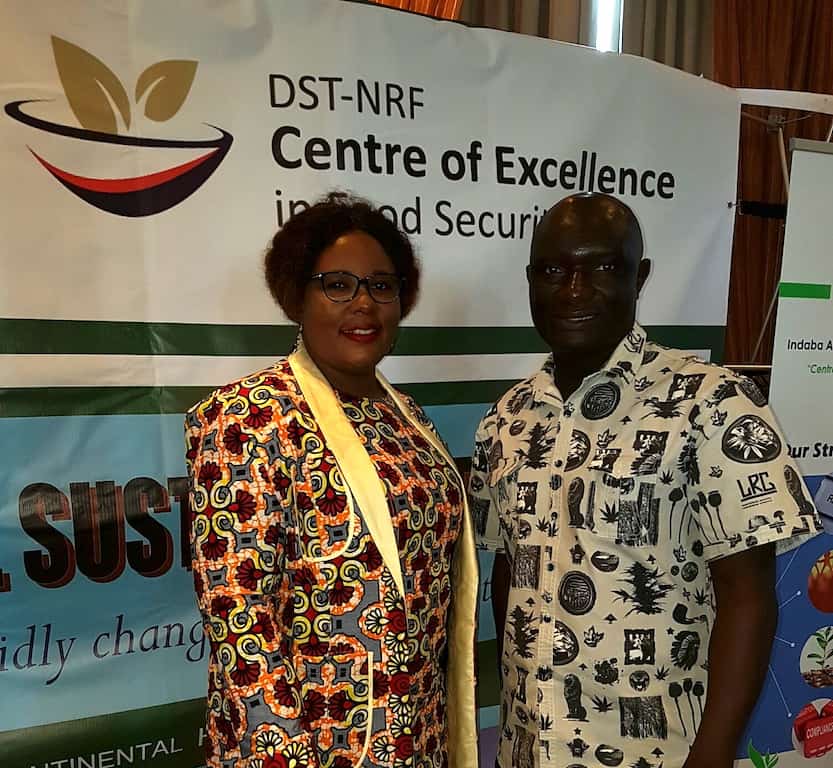
Left: Honorable Dora Siliya, the Minister of Agriculture in Zambia and CoE affiliate, Professor Voster Muchenje of the University of Fort Hare
Rising levels of greenhouse gases, coupled with increasing temperatures and climate change pose a major threat to food systems across the globe. Honorable Dora Siliya, the Minister of Agriculture in Zambia delivered opening remarks at the “Eastern and Southern Africa Regional Sustainability Summit” in Lusaka Zambia, where Local researchers, community leaders, international partners and policy makers gathered on 16 and 17 March 2017, to identify strategies to make agri-food systems more resilient to the effects of a rapidly changing climate.
African farmers, consumers and the agri-food systems are particularly vulnerable to climate-related shocks. To this end, the objectives of the Summit were to:
- Discuss available research evidence that may assist African governments put in place or strengthen strategies that anticipate increasing climate variability, and promote sustainable agricultural productivity, growth, and energy supplies, while maintaining and improving the natural resource base;
- Identify key knowledge gaps on climate resilience (mitigation and adaptation);
- Discuss policy options that will create incentives for farmers in the region to adopt practices that will improve and maintain agricultural productivity while maintaining and improving upon the natural resource base;
- Discuss how best durable agri-food, energy, and ecological systems in the region can be maintained in the light of anticipated human-induced climate change;
- Promote key outcomes and insights to policy-makers
During the two-day summit, CoE affiliate, Professor Voster Muchenje of the University of Fort Hare, delivered presentations on how innovation can help enhance sustainability in the livestock and crop sector. Muchenje said efficient production methods could help minimize production costs and at the same time, minimize the environmental impact.
Traditional leaders participating at the Summit urged researchers and policy makers “not to behave as though they’re the last people to live on planet earth” and called on governments, the private sector and development partners to do their part to ensure climate resilience and sustainability in Africa.
The involvement of a diverse group of stakeholders was key to the mission of the Summit whose goal was to encourage multi-sectoral cooperation to address the challenges of climate adaptation, agriculture and food insecurity. This is because understanding what works best in diverse settings and context is crucial for policy reform and can help bring effective and sustainable solutions to the challenges facing African food systems. A communiqué with recommendations for regional economic communities, such as COMESA and SADC, was developed at the summit.
The Summit was a joint initiative by the Indaba Agricultural Policy Research Institute, VUNA (meaning ‘harvest’ in many Southern African countries), and the DST-NRF Centre of Excellence in Food Security.
related Articles
Call for submissions: special issue of ‘Sustainability’
Photo Gabriel Jimenez/Unsplash. The special issue of Sustainability, which will build the empirical evidence base on agroecological transitions in middle-…
Women hit hardest by the impact of COVID-19
“Let me be clear,” she wrote on the World Economic Forum’s COVID Action Platform recently; “the longer-term impact of the…
Poor have borne the brunt of “inappropriate” Covid-19 regulations, experts say
The loss of jobs and desperately needed revenue to the state resulting from Covid-19-related restrictions will negatively impact the critical…



